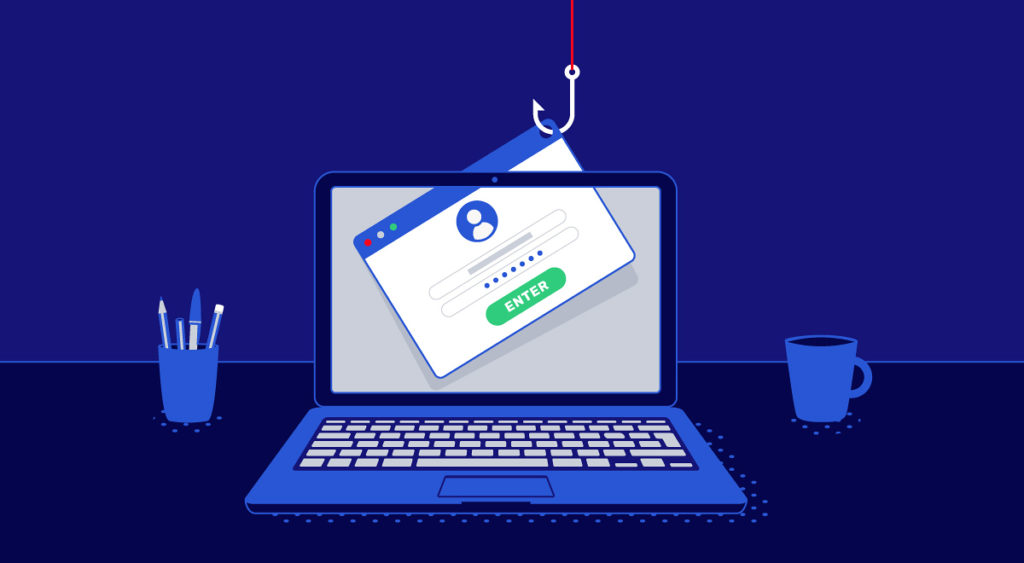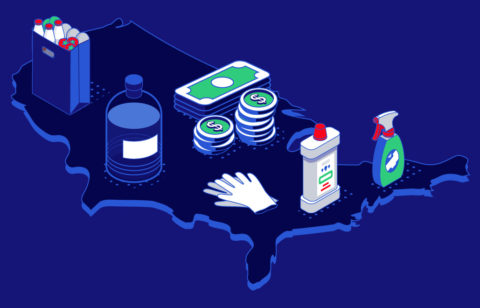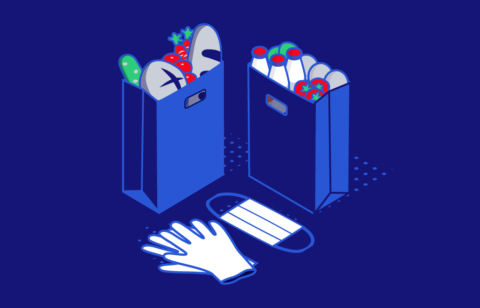The health impact of the coronavirus pandemic has been frightening, and most people have been cooped up for weeks practicing social distancing to halt the virus’ spread. Many more are out of work and concerned about how to pay the next round of monthly bills. While dealing with this COVID-19 “new normal” has been challenging, there’s yet another thing to be worried about, namely, phishing scams. Numerous internet and email scams are circulating, trying to take advantage of people who are already isolated and vulnerable by stealing money or critical personal information. If you don’t want to fall victim to shameless criminals, note these five phishing scams to avoid during the coronavirus pandemic.
1. Smartphone Scams
Several phishing scams target smartphone users with malicious files. If downloaded, the file could open sensitive personal and financial information stored on your phone. One sophisticated phishing scam appeared to be a COVID-19 tracking program for Android devices, and it displayed actual maps and medical tracking data for the virus. However, the downloaded app also secretly installed spyware that allowed hackers to access data on people’s phones; it could even be used to record audio and video.
One of the best ways to mitigate threats like this is to avoid third-party apps and programs; only download apps and software from Google Play or the App Store. Additionally, watch for any messages that tech giants such as Apple, Microsoft, or Google put out about apps that turn out to be problematic, and remove them from your smartphone if you have any lingering concerns.
2. Phishy Emails
Thousands of reports of coronavirus-themed email scams detail attempts to exploit people’s fears of the pandemic to gain access to their computers and sensitive data. The World Health Organization has recently warned of scammers using realistic-looking WHO email addresses in phishing scams. Some of these scams solicit donations for COVID-19 relief, while other more malevolent ploys have allowed hackers to gain access to individuals’ data, their bank accounts, or installed ransomware on their computers.
The best way to avoid these types of phishing scams is to apply a healthy dose of common sense and caution. Don’t click links in any unsolicited emails you receive. Additionally, don’t send money or give your financial data to people over the internet that you don’t know. Finally, don’t surrender any username or password information to people who seek this information from you in an email or via the internet.
3. Government Payment Scams
Another age-old phishing technique that’s being exploited during the COVID-19 crisis is the government payment scam. Like many effective frauds, this scam takes advantage of people’s basic knowledge of real government programs in an attempt to run an easy moneymaking fraud. Typically, scammers impersonating government officials or their representatives will send a semi-personalized email to a target, announcing that he or she has been selected to receive coronavirus-related funds from a government program. They’ll require the user to pay some processing fee to receive the government funding; once the hapless user pays the processing fee, the scammer disappears with the money.
Use common sense to avoid falling prey to this phishing scam. Government coronavirus relief programs don’t require you to pay a processing fee to receive grants, loans, or other funds, so never pay anyone asking for these kinds of fees. If all else fails, contact the Small Business Administration, your state attorney general’s office, or the Justice Department’s National Center for Disaster Fraud, if you think someone is trying to take advantage of you financially during the pandemic.
4. Fake Suppliers
One of the unfortunate aspects of the coronavirus pandemic has been supply chain disruptions. From empty shelves in the grocery stores to critical shortages of protective equipment at hospitals, individuals, businesses, and government agencies have been scrambling to get their hands on items they need. Unsurprisingly, scammers have found ways to exploit these shortages for their own gains.
Numerous fake storefronts and e-commerce sites have popped up throughout the crisis, purporting to sell items that are in short supply. Whether its medical gear, office supplies, or even toilet paper, online scammers have promised to deliver things people need, only to vanish after the items have been paid for. In some cases, shady suppliers have also delivered substandard equipment, especially medical gear. To avoid being ripped off by online opportunists, don’t order or pay for anything online from sources you’ve never seen or heard of before, and don’t give up your credit card or other sensitive financial information. If you can’t find the items you need from a reliable source, it may just be better to go without for now.
5. Bogus Cures
Another thing to watch out for during the pandemic is any email, text, or ads touting “cures” for the coronavirus. Numerous messages are going around that advertise medicines, teas, salves, and other items that can prevent, cure, or mitigate the effects of coronavirus. Several D-list personalities have even marketed their own dubious COVID-19 remedies. Alex Jones from InfoWars had been marketing several products that could allegedly treat the coronavirus, as was disgraced televangelist Jim Bakker. Thousands of products aimed at treating the virus have ended up online and even on Amazon.
Don’t get your hopes up or open your wallets for any of these products. The Federal Trade Commission has clearly noted that there currently are no effective treatments for COVID-19 available over the counter. It has also sent warning letters to many of the companies currently marketing products that claim to treat the virus. So, if you’re concerned that you may have been exposed to the virus or are feeling sick, forget the snake oil salespeople and contact a healthcare professional as soon as you can.
Staying Safe Has Never Been More Difficult
Dealing with the coronavirus pandemic is bad enough, so don’t fall victim to the various phishing scams that are trying to steal your money or data. If you use common sense and an abundance of caution, you should be able to avoid most scammers who are trying to take advantage of your vulnerabilities during this crisis. If you believe someone is trying to scam you, or you think that you’ve been a victim of a phishing scam, contact your local law enforcement officials. You should also reach out to the Justice Department’s National Center for Disaster Fraud at 866-720-5721, or via the Web Complaint Form. Doing so will help address your issues and perhaps prevent other people from being victimized by phishing scams.





